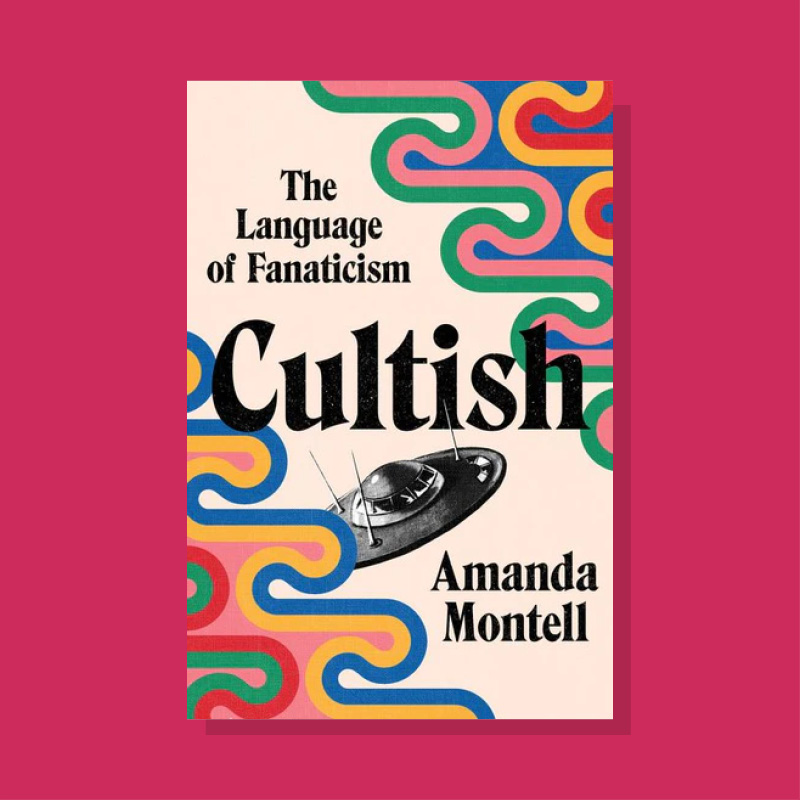
This review is dedicated to Lauren Dembicky-Polivka who is finishing her last day as Development Manager. For those who have never worked with Lauren, I will say this. We are both located on opposite ends of the office, and every now and then, I hear a sharp trill staccato through space. When the vibrations hit my back, I know that I have done well. Delight! I have made Lauren laugh.
(How can I not mention our matchmaker? While Clea was training me for my position, I mustered up the courage to inquire about a certain style of pithy (and pathetic) “poetry,” and she advised me to remain abstinent until I could discuss with Lauren. This was perhaps the only time in humanity when abstinence yielded positive results! Upon the utterance of a certain “poet,” Lauren’s and my eyes tangoed, lashes aflutter, diaphragms heaving, blood pressures rippling, all the fixings and garnishes. We were one.)
Have you ever felt the intimacy that only pure snark can conjure? It’s the cathartic one where after you suffer silently, years upon years, of wondering how in this world certain pop culture shenanigans fly, of how mediocrity can be celebrated as genius, of how fast a comrade becomes your oppressor while gaslighting you and lecturing you that they are still your ally, someone affirms your suffering. Someone says: I, too, think this is bonkers. No, it’s not just you. Snark is a spectator sport and it feels beyond any adjectival description I could give when there is someone on your side, wagging their finger with yours, while hollering: Hypocrite! Hypocrisy right there!
To segue into the actual book portion of this book review, I think about how the constant in any human condition is that of loneliness. It’s so difficult being alone that we even created a pantheon of deities to keep us company. Yet as experience and Cultish: The Language of Fanaticism note, such desperate attempts of congregating mixed with people’s perfunctory discernment of nuance and just our general frailties of gullibility, allow for the proliferation of the amateur grifter-turned cult maniac. This book isn’t so much a personality inventory of what makes someone a cult leader or follower, but rather which linguistic flourishes consolidate this attraction.
Talk with anyone about cults and the confidence is staggering. It seems we have moved on from the days of book-thumping study sessions in private homes or this iconic performance from Tom Cruise in the deeply troubling 1999 psychological drama Magnolia. Have we though? Isn’t the former now just hype sessions for selling leggings on Instagram? Isn’t the latter now just any tech conference? We have no problem crossing the street when we see the Scientology office and in the same breath have no problem advertising that ancient Chinese lady flying through the air (Pro-Tip: remember to make it non-Communist though!).
Cults thrive on ambiguity, and through the examples in the various sections of the book – the doomsday cults, multi-level marketing schemes, totalitarian fitness cliques, and extremist political twits – the only thing that is clear is their exploitation of language. I’m not talking about the bastardization of language through popular culture as there is a frustrating necessity for its use. I’m talking about the abuse of language to maliciously obfuscate. When things like medicine and facts can be “alternative,” when bullies cosplay their victims, when the most hideous of fundamentalist groups tell you that they are the “revolutionaries,” when the justification of policies that kill, maim, and desecrate this world is “God’s design,” and, the one that shatters my heart to pieces the most, when the progressives who have no problem selling out their communities and exploiting those even lower on the rungs of our society when they get theirs. How many times have we seen those, particularly from the marginalized communities, advocate in the sweetest language, until at some point in this fight, they alone decide when they have graduated to the realm beyond criticism. These are the same people who fight for these basic rights, who have no problem, upon the slightest discomfort, to furiously use every card in their hand – the lived experienced, the “don’t you cancel me,” the “haters gonna hate” – to censor those who dare not fall in line, who dare not fawn. Everything goes.
Language is not an utterance. This is what plagues our society. Everyone and their dogs believe that they are immune to cognitive fallacies and everyone, I mean everyone, would be proud to tell you they are a “critical thinker.” It’s ironic, isn’t it? The whole point of critically thinking is doing all those thinking steps, however uncomfortable or triggering or personally challenging, before that linguistic utterance. Declaring you are a(n) progressive, revolutionary, advocate means nothing, less than nothing, if you are just airdropped to your destination where automatons just randomly declare things. That’s like me declaring I’ve never been defeated by Muhammad Ali. We may as well just all be Michael Scott.
Oh Lauren, what to do about this world? You and I are the forensic accountants of nuance and with the distance now between us, how do we microscopically dissect? What if you have more fun at those megachurches we’ve daydreamed about and I’m left here, my stone heart eroded by the annoying glee and laughter of the children outside my window now that the Granville Island Waterpark is open again? What if one day you see a member of those fundamentalist purity culture Z-listers at the strip mall and I’m still here scrolling through Reddit alone? Would you save me a seat in this cult?
As you move on from the land that gave us random
indents on aphorisms
are now poetry
to the land where bitches get niches and assume the #bossbabe season of life, just know, I’ll keep the snark flame burning if you’ll keep our freak flag flying.
— Sarah Wang, Programming Coordinator
